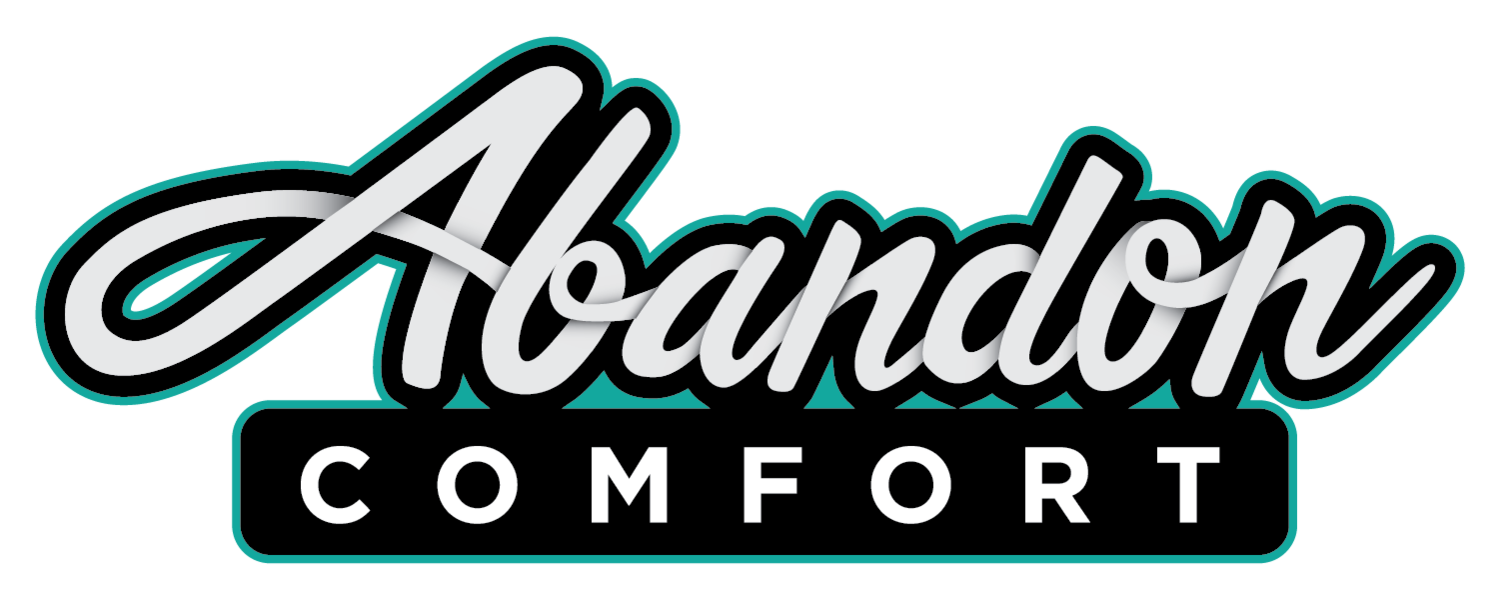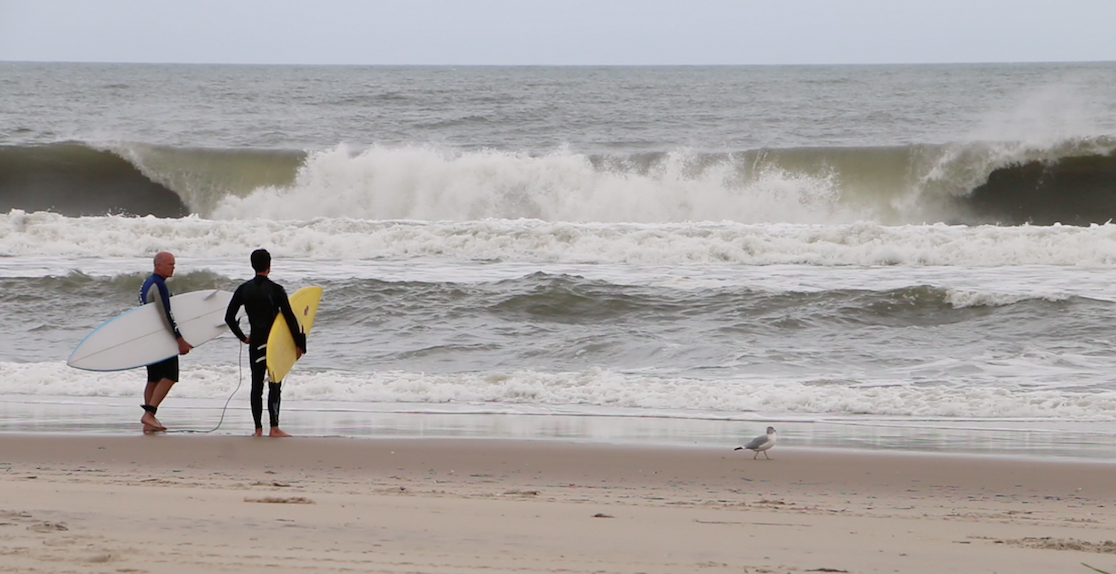Our first instinct used to be stop and stare when on an adventure. Whether it be a turtle surfacing on a passage or getting a break in the clouds on a summit, we’d stop and drink it in. Nowadays it’s become stop and share. It makes me question our motives for traveling. Before the YouTube series, it was to connect with nature, have our asses kicked by some physical adventure and then come back to truly enjoy the everyday comforts we all take for granted.
One of my favorite things about being on a long, grueling hike with switchbacks that never seem to end is that I’m forced to be present. It’s a similar feeling to running marathons or surfing in the dead of winter staring down 6+ ft walls of jersey juice. I’m forced to deal with the here and now. Put your head down and paddle harder or enjoy a few ice cream headaches. My mind is completely focused on the task at hand, nothing else.
Enjoying some “Jersey Juice” with my Dad thanks to Hurricane Jose last fall.
Life through a lens makes you view things in a different light. You’re focusing on the shot, the story and your first instinct is to grab the camera. No matter which way you spin it, the truth is experiencing an adventure through the lens isn’t being present. That’s why for our last trip we decided to leave behind the camera gear. Well, the video camera at least. Taking pictures versus documenting via video are two totally different beasts.
This past trip was a lot like our adventures before we decided to share them on YouTube. Not going to lie, it was refreshing. It came with a feeling we haven’t felt in years. Does it mean we’ll stop sharing our journey? Probably not. But at the end of the day, our mission for starting AC wasn’t to entertain or have the camera in our face 24/7. It was to educate through transparency and show what it actually looks like when living out ones great adventure. Not the typical travel vlog; aka a highlight reel of us romanticizing our lives. Everyday we stay motivated by that and are always looking to evolve the series to better cater to our vision.
We think it’s healthy to question our motives for why we do what we do. Nothing is worse than just dragging on and tolerating the mediocre with the unfounded hopes of some promise land at the end of it all. Questioning our motives keeps us true to our mission. It keeps us in check. And most importantly, it keeps us present.























